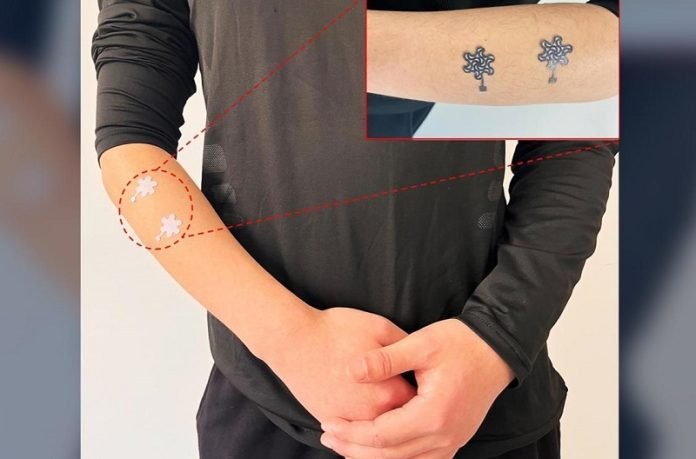
A team of scientists led by Penn State University has developed a low-cost, waterproof, and wearable sensor that can keep track of different health signs.
The details of their work on this pencil-on-paper sensor have been published in the Chemical Engineering Journal.
This work was supported in part by two grants from the U.S. National Science Foundation.
The team had earlier created a similar sensor that could be used in “smart diapers” to spot when they’re wet.
However, this older sensor wasn’t waterproof, so it couldn’t accurately monitor other health-related things where moisture might mess with the sensing and the results.
“We are trying to measure things like gas molecules, temperature, and electrical signals related to body functions,” said Huanyu “Larry” Cheng from Penn State, one of the lead authors of the study.
“If the moisture or sudden changes in humidity interfere with the sensor, the signal and its ability to hold up physically will be affected. That’s why we created a super waterproof coating, which makes the sensor basically waterproof.”
The scientists used a waterproof coating made from silica, which had been used for other sensors, but not for pencil-on-paper sensors before. The sensors were also made stretchable, so they could be worn on the skin.
These sensors can pick up temperature and gas molecules and also capture electrical signals related to body movement, heart activity, and brain signals. The researchers said the device could not just sense, but also stimulate — for example, it could give thermal therapy by sending a current to the skin.
Cheng thinks that the sensor’s low cost, ease of use, and the range of vital signs it can measure could make it helpful for public health uses.
Follow us on Twitter for more articles about this topic.



